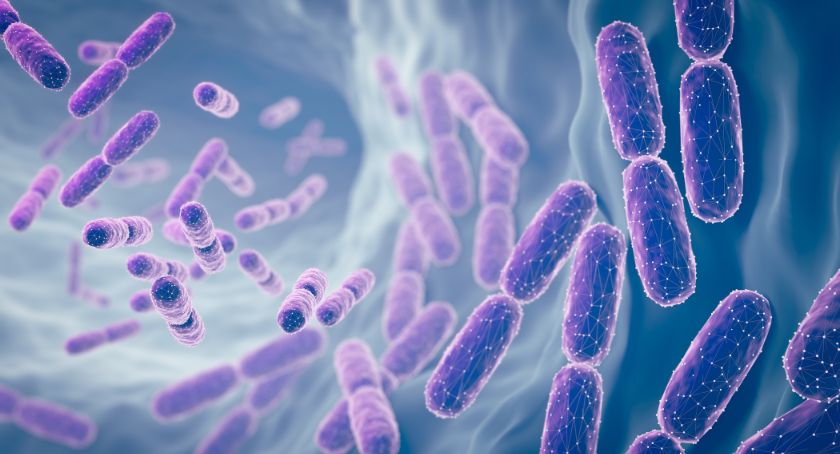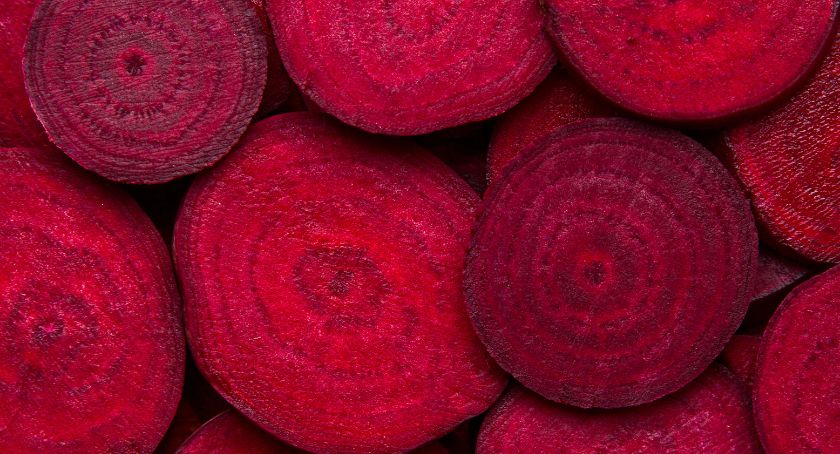Exclusives
Berberine Is Not ‘Nature’s Ozempic,’ But its Fame is Far From Over
With a groundswell of interest in blood sugar and weight management, natural products like berberine have been going viral.

By: Mike Montemarano
The frenzy over GLP-1 agonist drugs like Ozempic and Wegovy for the purposes of weight loss has shaken up the nutraceuticals industry, with growing demand for dietary supplements that can support blood sugar, overall metabolic health, and weight management.
Perhaps no single ingredient has drawn more attention of late than berberine, which went viral on social media platforms such as TikTok thanks to influencers who’ve dubiously dubbed the compound “nature’s Ozempic.”
Such a claim is inaccurate and unlawful in marketing. However, berberine’s time in the spotlight reflects growing consumer interest in accessible, non-pharmaceutical products that might offer an edge in controlling blood sugar and metabolic health.
Berberine sales continue to reach new all-time highs, according to market researcher SPINS. Over a 52-week period ending in May 2024, berberine supplement sales rose 110.6% to exceed $12 million.
What is Berberine?
Berberine is a bitter-tasting, yellow alkaloid which is found in the barks, leaves, twigs, rhizomes, roots, and stems of approximately 450-500 plant species, including barberry, goldenseal, tree turmeric, and other medicinal plants used in Ayurveda and Traditional Chinese Medicine (TCM) for thousands of years.Berberine-rich plants of the Berberis genus have been used in TCM spanning 3,000 years, with a similar history of use in Ayurveda, per a 2018 review in Frontiers in Pharmacology.
According to the American Chemical Society, berberine was first isolated in 1917 from goldenseal, and was initially used as a dye before it was included in herbal dietary supplements.
Limited research, including some human clinical studies, has examined berberine’s role in metabolic health outcomes like blood sugar, weight loss, and lipids, its potential antimicrobial activity, and potential benefits for polycystic ovary syndrome (PCOS) with insulin resistance. Most human clinical trials found that daily treatment with 500-1,500 mg of berberine, over multiple doses per day, was efficacious.
According to PubMed’s database, research on berberine has risen dramatically in the past several years, with a record high of 718 articles on berberine published in 2021.
However, most literature reviews categorize the body of research on berberine’s various health effects to be inconclusive, warranting more large-scale, multicenter human clinical studies. The U.S. Food and Drug Administration (FDA) has not authorized any qualified health claims for the compound.
How Does Berberine Work?
Like many plant alkaloids, and other kinds of botanical products, berberine is thought to have a complex interplay with several metabolic pathways. Several mechanisms of action, observed in vitro, in animals, and in humans, have been associated with potential health benefits.Michael Anthonavage, vice president of innovation at Vitaquest International, said there’s still much to discover at the extremely early phases, with in vitro models using liver, smooth muscle, pancreatic, fat, and muscle cells, “all shedding light on how berberine works physiologically to control weight, appetite, energy metabolism, and the adverse effects of excessive weight gain.
One of the most-researched mechanisms is berberine’s ability to regulate AMP-activated protein kinase (AMPK), a compound that controls energy homeostasis and metabolism. This is one of the key proposed pathways by which berberine is thought to stimulate glucose uptake and reduce glucose production in the liver, noted Susan Hazels Mitmesser, PhD, senior vice president and chief science officer at Pharmavite, maker of Nature Made supplements.
AMPK activation has been associated with positive outcomes in cases of metabolic syndrome, insulin resistance, obesity, and diabetes, as it can convert cells from an anabolic state to a catabolic state. In the tissues of people with obesity and metabolic syndrome, AMPK activity is inhibited. “Berberine’s ability to activate AMPK has also been shown to play a role in reducing fatty acid synthesis,” said Sebastian Balcombe, founder and CEO of Specnova.
Berberine may also enhance hepatic uptake of low-density lipoprotein particles by inhibiting proprotein convertase subtilisin/kexin type 9 (PCSK9), increasing fecal cholesterol excretion, improving hepatic cholesterol turnover, and decreasing cholesterol absorption, Mitmesser added.
Berberine has an effect on the balance of bacteria in the gut microbiome, and gut bacteria can release a range of metabolites after interacting with berberine. “One of the many mechanisms by which berberine may protect against weight gain is through the short chain fatty acid-mediated modulation of secreted gut hormones involved in the regulation of food intake and energy homeostasis,” including GLP-1, GLP-2, and peptide YY, with a decrease in gastric inhibitory peptides, Anthonavage said.
He noted that some other supplements, such as ginseng, green tea extract, pomegranate, resveratrol, and certain probiotics may increase GLP-1 naturally, but berberine’s influence on GLP-1 is more comparable to metformin orsaxenda[TM1] , common pharmaceutical interventions for type 2 diabetes, per multiple human clinical studies. “Analogies to semaglutides have also been documented in the marketing of berberine but caution should be taken as to not compare their activities on a one-to-one basis,” Anthonavage said.
Does Berberine Improve Blood Sugar?
Berberine has been investigated for its blood glucose benefits since the mid 1980s, noted Balcombe. “If we were to just focus on its blood sugar/weight management benefits, I would say its impacts are well-established in the literature. Typically, when you look at the body of research, berberine is shown to reduce blood glucose in the range of 7-11%, fasting and postprandial, and hemoglobin A1C (HbA1C) by a 7-8% range, which is quite impressive. There are some very interesting animal mechanistic studies coming out this year as well, which can lead into the more important human clinical trials.”One of the earlier human clinical trials investigating the relationship between berberine and blood sugar was a very small 2008 pilot study on newly-diagnosed diabetic adults. Researchers found that taking 500 mg of either berberine or metformin, a diabetes drug, three times daily achieved similar hypoglycemic effects.
The group taking berberine also experienced significant decreases in HbA1C, fasting blood glucose, postprandial blood glucose, and plasma triglycerides. The pilot study, which was primarily to determine berberine’s safety, was then followed up with a 3-month human clinical trial involving 43 adults with poorly-controlled type 2 diabetes.
While no effects were observed in a placebo group, those taking berberine saw significant reductions in fasting blood glucose and postprandial blood glucose, starting at 1 week. Those taking berberine in the follow-up trial also saw reductions in HbA1C, fasting plasma insulin and homeostasis model of insulin resistance index, and total and LDL cholesterol.
Since that time, several studies on berberine in diabetes patients have been completed. A 2022 review published in Frontiers in Pharmacology detailed 37 studies involving a total of 3,048 type 2 diabetes patients, analyzing the potential glucose-lowering effects of berberine. Studies assessed outcomes including FPG, HbA1c, and 2-h in plasma blood glucose. The authors concluded that berberine had a glucose-lowering effect, both with and without the use of other oral hypoglycemic agents, and didn’t significantly increase the incidence of total adverse events compared to those who didn’t take it.
The authors noted that there was a direct relationship in which higher FPG and HbA1c at baseline was associated with a stronger response to berberine treatment. Research on the effects of berberine on blood sugar management in healthy participants, as opposed to type 2 diabetes patients, is scarce, and much less conclusive.
Berberine and Cholesterol/Triglycerides
In addition to emerging evidence suggesting that berberine can induce changes to blood sugar markers, it may also target inflammatory and lipid pathways to improve blood lipid profiles.A study published in 2021 found that, in 84 men with hyperlipidemia, those who took a twice-daily supplement containing 500 mg of berberine experienced significant reductions in LDL and total cholesterol. There were also statistically insignificant reductions in triglycerides, blood pressure, and adiposity in the treatment group.
The authors of the study noted that men on berberine saw an increase in testosterone, in what was the first study to evaluate this outcome. Interestingly, previous research indicated that berberine appeared to reduce testosterone in women with polycystic ovary syndrome, a condition in which the ovaries produce abnormal amounts of male sex hormones, while also attenuating PCOS-related cardiovascular risk factors including blood lipids.
Since that time, more evidence has come to light that berberine might also exert effects on sex hormones with lipid-modifying effects that were previously overlooked. Across 18 studies evaluating 1,788 men and women with dyslipidemia (high cholesterol) berberine was found to modestly reduce LDL cholesterol and triglycerides, while also increasing HDL cholesterol, a 2023 review in Drugs concluded. The HDL increase, across these studies, was significantly greater in women than in men.
Is Berberine Helpful for Weight Loss?
While emerging research suggests that berberine performs better than placebo in supporting weight loss, the evidence is inconclusive, according to reviews to date. Additionally, berberine hasn’t been directly compared to other nutritional approaches to weight loss, so it’s difficult to determine how effective it is on a relative scale, Mitmesser noted.“But, as with any type of weight management program, including when taking berberine supplements, it is important to adopt a healthy lifestyle, incorporate a healthy eating plan, and increase physical activity,” said Mitmesser. On that note, consumers should only consider berberine supplementation for weight loss under the consultation of a healthcare professional, she said.
“It’s one effective tool to assist in the process but it does not do it alone, and it will take a change in diet and exercise to have a meaningful impact,” said Balcombe. “That said, there are so many incredible health benefits of berberine, from its blood glucose benefits to its positively affecting cholesterol, triglycerides, neuroprotective, and anti-anxiety benefits.”
A 2020 meta-analysis, which included 12 randomized controlled trials on berberine and anthropometric measures, C-reactive protein (CRP), and liver enzymes found that berberine treatment moderately but significantly decreased body weight by an average of -2.07 kg, body mass index by an average of -0.47 kg/m2, and waist circumference by an average of -1.08 cm. Berberine intake didn’t affect liver enzymes, including ALT and AST, the authors said. It also led to decreased levels of CRP.
According to the National Institutes of Health’s National Center for Complementary and Integrative Health (NCCIH), high-quality research is still needed to determine whether berberine may reduce weight and BMI. A 2022 review of 18 studies on body weight and 23 studies on BMI found that berberine treatment led to significant positive changes in both, when used at a dose of more than 1 gram per day for 8 or more weeks.
“The amounts and formulations of berberine used in different studies varied widely, and most of the study participants had health problems, such as diabetes or fatty liver disease, which might have influenced the results,” NCCIH reported.
Overall, it’s important to keep the broader complexities and limitations of weight management research in mind, noted Anthonavage. “Understanding weight management from a systems biology perspective takes the integration of multiple disciplines in biochemistry, exercise physiology, sleep, cognitive health, microbiome support, and digestive health. Each of these areas has its model systems, controls, benchmarks, and technologies that support them. Finding the right combination of technology, dosage, and programs to administer and monitor these conditions is under continuous investigation by researchers and clinicians.”
He also noted that one crucial aspect of incorporating berberine into weight loss plans will be determining the right pace of weight loss over time. “It is important to make slow, deliberate changes to your weight so as to not experience rebound weight gain,” he said. “GLP-1 agonists such as berberine and other supplements work in part by inhibiting appetite which, in turn, results in less intake of food. This includes protein, which in turn may lead to a catabolic process resulting in loss of muscle as well as fat. Discontinuation of these supplements can result in a rebound effect if new habits are not entrained … What is troubling is that the ratio of weight gained is more skewed towards fat than protein, resulting in an unfavorable metabolic body composition which becomes difficult, and harder to correct with time.”
Berberine Safety, Side Effects
“While some gastrointestinal side effects have been reported in studies, berberine generally appears to be safe. It’s important to always check with your healthcare professional if you’re considering berberine supplementation, as it may interact with medications due to the way the supplement is metabolized, its glucose-lowering effects, and other factors,” said Mitmesser.“There are multiple meta-analyses of berberine looking at safety markers and adverse events in 2,000 to 3,000 subjects, anywhere from 1 to 6 months, depending on the meta-analysis one is looking at,” said Balcombe. Collectively, data supports its short-term safety record, with GI issues at high doses representing the worst outcomes.
Per the National Library of Medicine’s MedlinePlus, berberine is contraindicated for pregnant or breastfeeding women and children. It has several known interactions with medications, and should be taken with caution when combined with cyclosporine, dextromethorphan, losartan, metformin, diabetes drugs, antihypertensives, and more.
“In general, medications where the liver enzymes CYP2C9, CYP2D6, and CYP3A4 are involved in their metabolism, these medications can potentially be affected by berberine which impacts these enzymes, either increasing or decreasing how quickly the medications are absorbed,” Balcombe noted.
Common side effects include diarrhea, constipation, gas, and upset stomach, MedlinePlus reports, and while it’s been safely used in doses of up to 1.5 grams daily for 6 months, longer-term usage hasn’t been evaluated for safety.
Despite that it’s linked in some studies to beneficial gut microbiome changes, berberine may also disrupt gut microbiome balance and cause dysbiosis due to increases in the Porphyromonadaceae and Prevotellaceae families, among other genera.
Dihydroberberine vs Berberine
Due to this gut disruption, dihydroberberine was created as a slight variation of berberine with the aim of improving absorption and reducing stomach side effects.Berberine Manufacturing and Quality Challenges
Berberine is usually extracted from either goldenseal or barberry, via an extraction and isolation process involving the use of ethanol and water as organic solvents, and like many other botanical extracts, validated thin-layer chromatography and high-performance liquid chromatography methods can be used to determine purity against the USP reference standard. The finished extract is berberine hydrochloride.To overcome bioavailability challenges, supplement manufacturers utilize advanced delivery technologies. “As Nature Made honed in on innovation within the berberine space, a focus on berberine phytosome, a clinically-studied form of berberine that’s specially formulated with a phospholipid complex for higher bioavailability than berberine hydrochloride alone, the standard form of berberine allowed us to deliver a better absorption offering to consumers … with five times higher bioavailability than standard berberine (HCI), when taken on an empty stomach,” Mitmesser said.
“Berberine is known for poor bioavailability,” Balcombe said. “Working on ways to improve this shortcoming can take an already effective ingredient, though high doses of 1,000-1,500 mg are needed for efficacy, and raise its benefits to new heights while being able to utilize lower dosages.”
One of the key factors in berberine’s poor bioavailability is the fact that 80% of it is metabolized in the liver by CYP2D6. But issues like poor solubility in the stomach and poor intestinal permeability can be addressed.
Reports over the years indicate that quality issues are relatively abundant in the supply of berberine supplements.
ConsumerLab.com, a third-party evaluator of finished nutrition products, reported in 2017 that 67% of goldenseal root powders and berberine extracts selected for testing didn’t meet the testing company’s minimum amounts of berberine based on U.S. Pharmacopoeia (USP) standards.
A 2018 study published in the Journal of Dietary Supplements tested 15 unique berberine supplements via ultra-high-performance liquid chromatography-tandem mass spectrometry. The average berberine content across the products was found to be 75% ± 25% of the product label claim, with product potency ranging from ±33% to 100%. Nine of the 15 products (60%) failed to meet USP potency standards.
In December 2023, natural products company NOW tested 33 berberine supplements purchased online from Amazon and Walmart at its in-house testing laboratory. The company reported that the lesser-known brands it tested each failed to meet 100% potency. Seven brands achieved 80% potency, and three brands achieved 90-97% potency, but 18 of the 33 tested brands had less than 40% of labeled potency. Three brands had 1% or less of the potency claimed on the label.
Balcombe said it’s difficult to translate the most advanced extraction techniques, drying methods, and encapsulation formulations, and corresponding analytical chemistry to quantify and validate the process on spec sheets and certificates of authenticity (COAs). “We are forced to showcase our ingredients in the most simplistic ways,” he said.
“The contract manufacturers (CMs) who receive our ingredients and use them in finished products are not set up to do even remotely sophisticated analytical chemistry in-house, and even our industry’s third-party lab system that a CM may send out a sample to for testing are not either, although some are improving.”
As a result, especially with advanced formulations like liposomal powder technology, specs must be simplified and validated at a CM level — just a few third-party labs in the U.S. can accurately test them, Balcombe said. “The end result is a major lack of differentiation when looking at a spec sheet or COA between the lowest-level/commodity quality ingredients and the most effective and advanced ingredients, despite large differences.”
About the Author: Mike Montemarano has been the associate editor of Nutraceuticals World since 2020. He can be reached at mmontemarano@rodmanmedia.com.





















